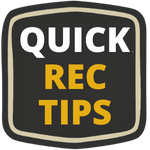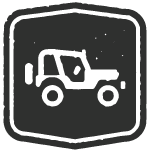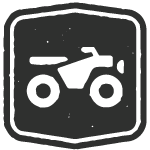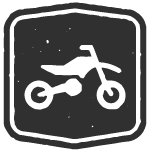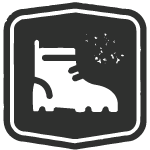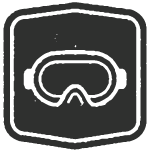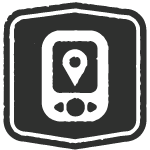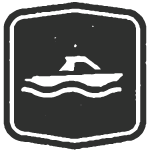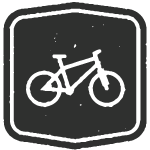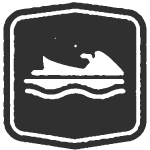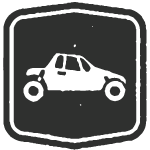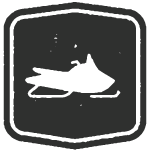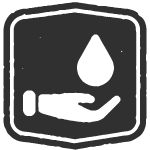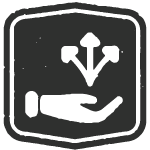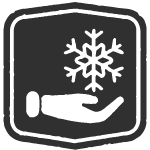
Fishing
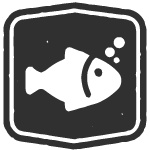

Minimize your impact by traveling only in areas open to four-wheel drive vehicles. Learn more about our RIDE ON campaign.
Knowing how to minimize your impact on the environment when you fish is critical. Below are some quick tips on responsible fishing in the great outdoors using the TREAD principles.
TRAVEL RESPONSIBLY
Travel responsibly on land by staying on designated roads, trails or areas. On water, stay on designated waterways and launch watercraft in designated areas.
- Travel only in areas open to your type of watercraft or on routes open to your mode of transportation.
- Carry a Coast Guard approved life vest (PFD) that is wearable and comfortable for each person.
- Always maintain your watercraft at a manageable speed.
- Keep an eye out for other boaters, objects and swimmers.
- Do not create new routes on roads and trails or expand existing trails. Go over obstacles, not around, to avoid widening trails.
- Cross streams only at fords, where the road or trail crosses the stream.
- Comply with all signs and respect barriers.
- Buddy up with two or three anglers, reducing vulnerability if you have an accident or breakdown.
If crossing a stream with a vehicle, do so only where the trail crosses the stream or at designated fording points. Choose access to fishing spots wisely. Be mindful of damaging fragile vegetation and soils along shorelines and stream banks.
RESPECT THE RIGHTS OF OTHERS
Respect the rights of others on land including private property owners, recreational trail users, campers and others so they can enjoy their recreational activities undisturbed. On water, respect anglers, swimmers, skiers, boaters, divers and others so they can enjoy their recreational activities undisturbed.
- Be considerate to all recreationists on and around waterways and on the roads and trails to fishing spots.
- Be a sportsman; practice catch and release and keep only what you need.
- Be courteous to other boaters while in boat ramp areas. Launch and retrieve your watercraft as quickly as possible.
- Leave ample room for other anglers, so you don’t disturb their fishing experience.
- If fishing by boat, don’t crowd other anglers or watercrafts.
- Keep the noise down especially around shore and other anglers.
- Be considerate of others on the road or trail. On roads and trails, horses always have the right of way and when driving yield to hikers and bikers as well.
EDUCATE YOURSELF
Educate yourself prior to your trip by learning rules and regulations, planning for your trip, taking recreation skills classes and knowing how to operate your equipment safely.
- Obtain a map or chart of your destination and determine which areas are open to your type of travel and recreation.
- Make a realistic plan and stick to it. Always tell someone of your travel plans.
- Contact the land manager for area restrictions, closures and permit requirements.
- Check the weather forecast for your destination. Plan clothing, equipment and supplies accordingly.
- Know your local fishing laws and regulations. Many states have restrictions for certain waters, such as use of artificial flies and lures, single hook flies and lures, barbless or no live bait.
- Know bag limits and legal length/size of fish you intend to keep.
- Be prepared with alternative fishing locations if you arrive at an overcrowded area.
- Make sure your watercraft or vehicle is mechanically up to task. Be prepared with tools, supplies, spares and a spill kit.
- Leave gates as you find them.
- If crossing private property, be sure to ask permission from the landowner(s).
AVOID SENSITIVE AREAS
Avoid sensitive areas on land such as meadows, lakeshores, wetlands and streams. Stay on designated routes. On water, avoid operating your watercraft in shallow waters or near shorelines at high speeds.
- In the backcountry, be mindful of damaging fragile vegetation and soils along shorelines and stream banks. Choose access to fishing spots wisely.
- Other sensitive habitats to avoid are seasonal nesting or breeding areas.
- Do not disturb historical, archeological or paleontological sites.
- Avoid “spooking” livestock and wildlife you encounter and keep your distance.
- Motorized and mechanized vehicles are not allowed in designated Wilderness Areas.
DO YOUR PART
Do your part by modeling appropriate behavior, leaving the area better than you found it, properly disposing of fuel, oil and waste, avoiding the spread of invasive species and restoring degraded areas.
- Pack out what you pack in and carry a trash bag to pick up litter left by others.
- Pack out any discarded fishing line. Monofilament line is especially dangerous to all wildlife.
- Never discard fish entrails in lake shallows or any area where others might come across it. It is unacceptable to bury it near the lake or stream or burn it in camp. Suitable alternatives include bagging and packing out entrails, disposing of it in water at least 25 feet deep or burying it 100 yards away from any lake, trail or camp.
- Use only artificial lures. Live bait has the potential to accidentally introduce exotics and cause more damage to fish when being released, as they often take live bait deeper. If you do use live bait, use only bait native to the area.
- If practicing catch and release, use barbless single hooks to make release easier.
- When practicing catch and release, keep fish in the water as much as possible, with air exposure under 30 seconds at a time and 60 seconds total. Handle them as little as possible with wet hands and release them gently into the water so they are sure to survive.
- Knotless or tubber mesh nets are much easier on fish and significantly increase post-release survival rates.
- When holding large fish for a photo, hold them horizontally, supporting their weight, not vertically which can cause fatal injuries, even if the fish swims away.
- Minimize fishing during spawning periods.
- Release smaller fish as they are forage for many residents of the ecosystem. Larger and older fish are often the best producers, collecting more contaminants and are less healthy to eat—also making them good choices for release.
- Observe proper sanitary waste disposal or pack your waste out.
- Prevent unnecessary noise created by a poorly tuned vehicle or motor or revving your engine without need.
- Before and after a trip, wash your gear, watercraft and support vehicle to reduce the spread of invasive species. Remove all plant material from watercraft, motor, trailer and other gear and dispose on dry land in a garbage container. Drain livewells, bilge water and transom wells at the boat launch prior to leaving.
LEARN MORE
Tread Lightly!’s Tips for Responsible Motorized Boating
Read our article about Advanced Ice Fishing Tactics
Take the Boat U.S. Foundation’s free online boater education course.
Take the Tread Lightly! 101 Online Course.
Stand with thousands of your fellow fishermen and outdoor recreationists to help to keep the great outdoors healthy, open and accessible. Join Tread Lightly! today and score fantastic benefits.



